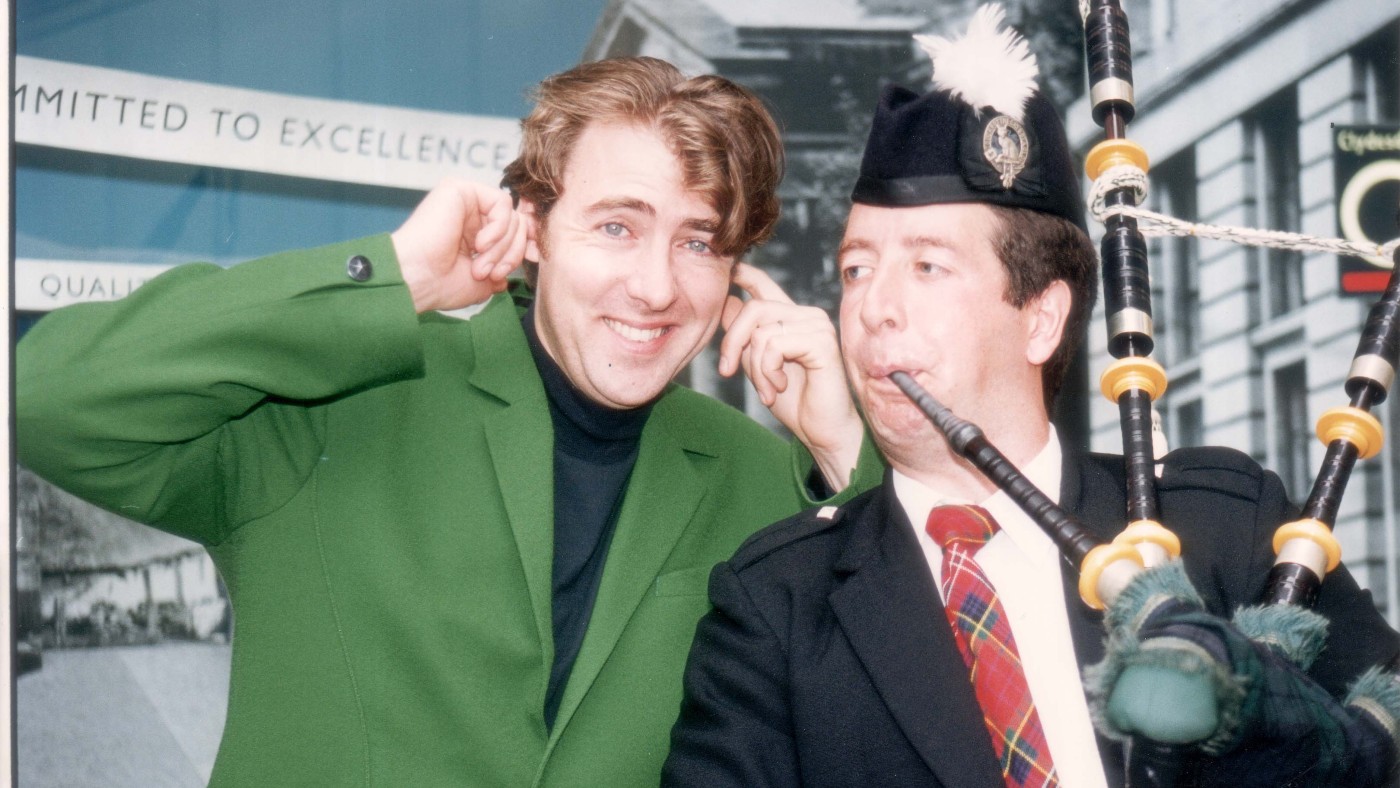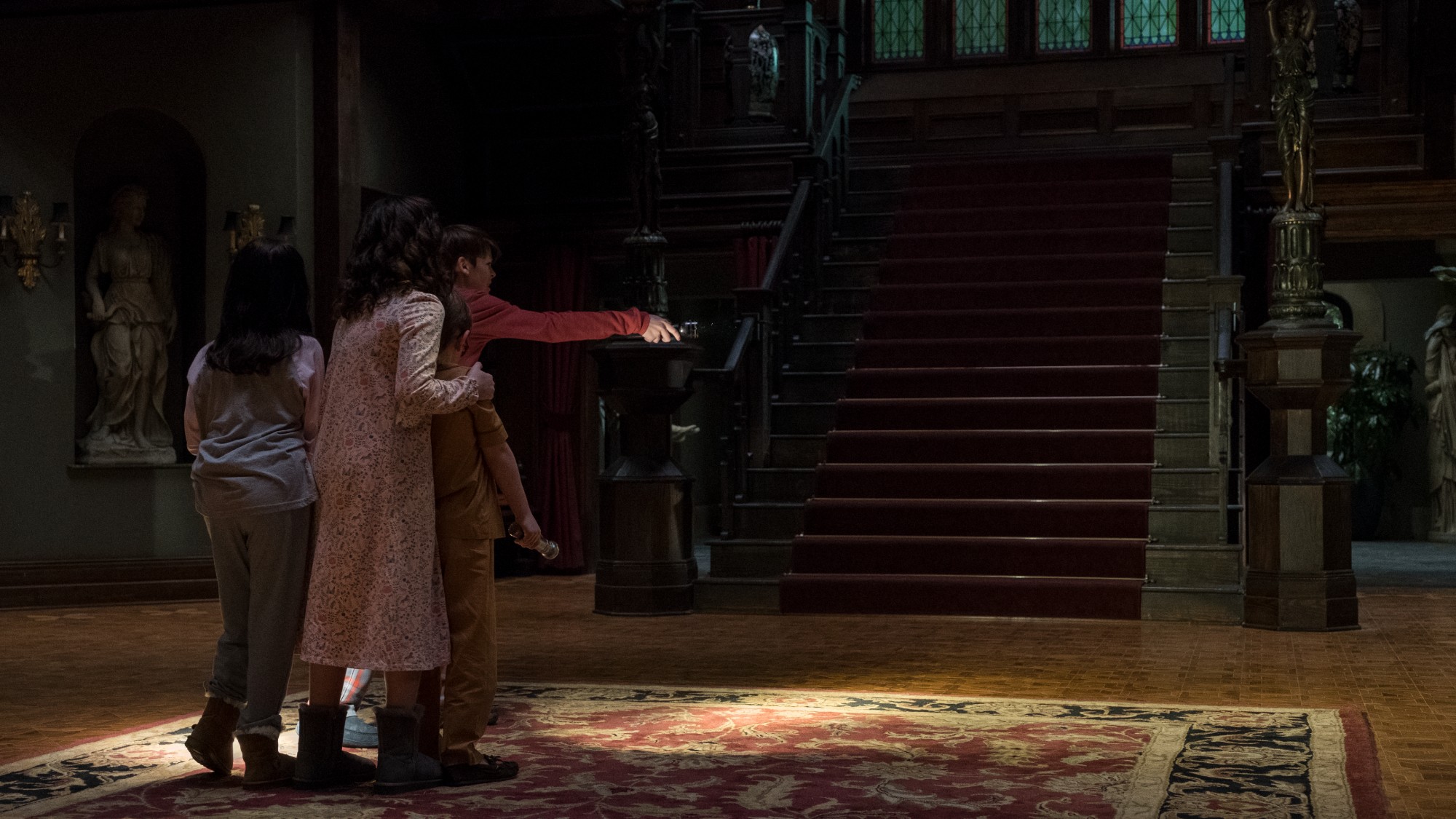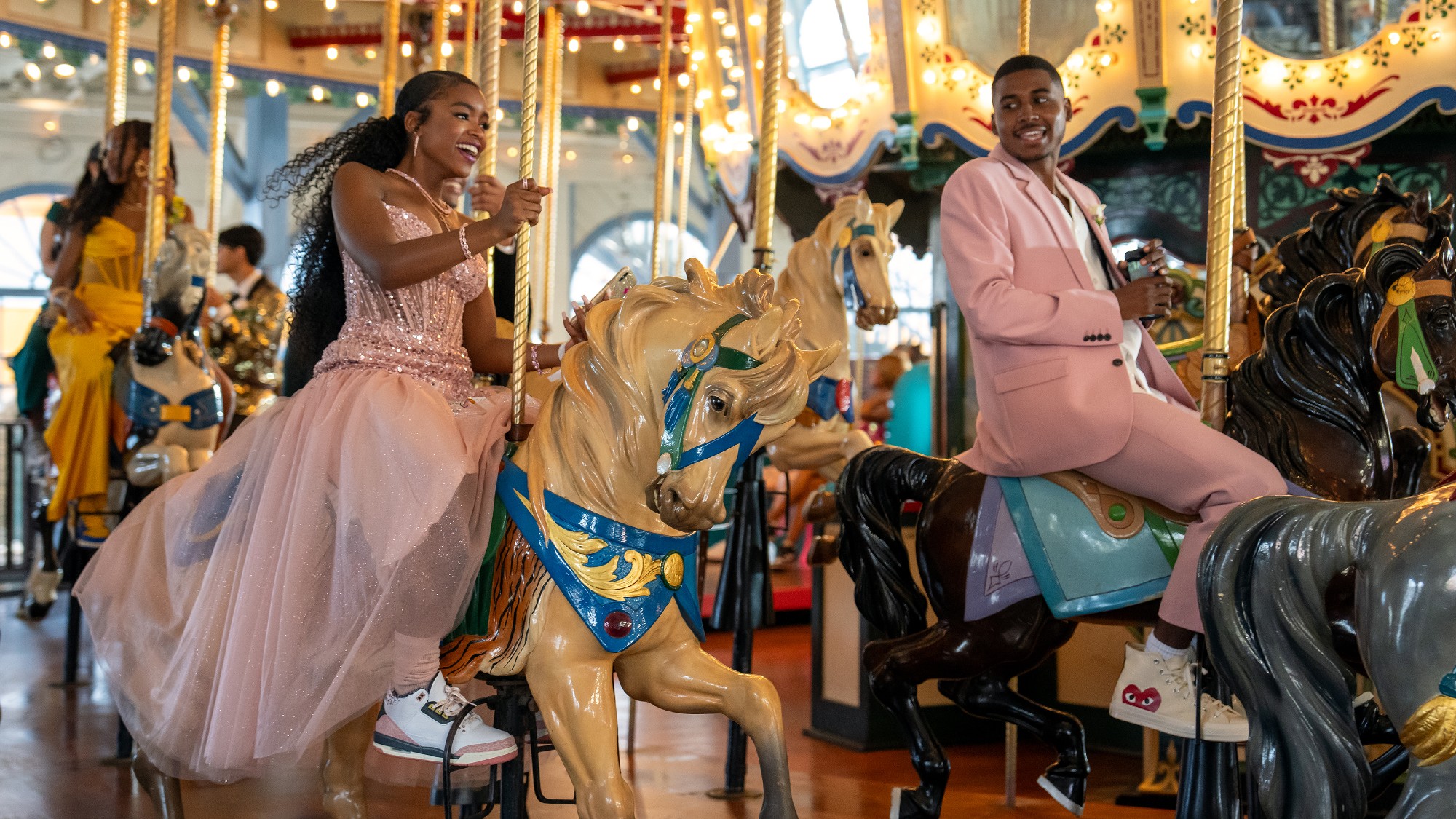Should we shower more than once a week?
In this work-from-home era, some people are going full 'goblin mode'

A free daily email with the biggest news stories of the day – and the best features from TheWeek.com
You are now subscribed
Your newsletter sign-up was successful
Jonathan Ross has courted controversy before but the chat-show host has sparked a particularly lively debate by admitting how rarely he showers.
"I resent the fact that I have to shower," he told the "Parenting Hell" podcast, and sometimes go "at least a week without showering". Ross said his wife, Jane Goldman, is the same, leaving them "like a couple of hamsters in their own straw in that bed".
'Goblin mode'
Ross's admission is "jaw-dropping" and "stomach churning" said The Mirror. After learning of his "grim hygiene standards", some have "taken to social media to slam the television personality". One "repulsed" commentator wrote: "Yuk. No wonder his TV show guests sit so far away from him."
The Week
Escape your echo chamber. Get the facts behind the news, plus analysis from multiple perspectives.

Sign up for The Week's Free Newsletters
From our morning news briefing to a weekly Good News Newsletter, get the best of The Week delivered directly to your inbox.
From our morning news briefing to a weekly Good News Newsletter, get the best of The Week delivered directly to your inbox.
But others have applauded Ross's honesty. "Becoming a member of the great unwashed never felt so on-trend," said Helen Coffey in The Independent, and I felt "secretly vindicated" after he spoke out. I used to be "more scrupulous" but now that I work from home three days a week, "it's all too tempting to go full goblin mode" – defined by Oxford University Press as "a type of behaviour which is unapologetically self-indulgent, lazy, slovenly, or greedy, typically in a way that rejects social norms or expectations".
Amid the "proliferation of wellness culture, clean living and more lotions and potions than any of us could ever need", said Coffey, it's "refreshing" to have "someone in the spotlight holding their hands up and saying that, hey, they're happy to be just a little bit gross".
There are times when a shower is necessary, said Robert Crampton in The Times, "especially in the summer, or after a run, or if you work on the bins". But mostly, some "judicious flannel work will suffice", whereas "getting fully naked and fully wet is a faff".
'No hard and fast rules'
Ross has stirred up a long-running debate. In 2015, Professor Stephen Shumack, president of the Australasian College of Dermatologists, told The Sydney Morning Herald that "it's only in the last 50 to 60 years" that the idea of a daily shower has "become commonplace". And "the pressure to do that is actually social pressure rather than actual need", she said.
A free daily email with the biggest news stories of the day – and the best features from TheWeek.com
But the "much-touted theory" that if you stop washing your hair with shampoo it cleans itself may not be accurate, said Coffey. She quoted Anabel Kingsley, a trichologist from the Philip Kingsley clinic in London, who said that without regular washing, the hair and scalp "are likely to become coated in dirt, smelly, greasy and flaky", with a "build-up of yeasts and bacteria".
There are "no hard and fast rules", Coffey concluded, but showering less often, "provided you keep fundamentals clean (groin, face, underarms)", shouldn't do any harm. So "why not press pause on the judgement, embrace your inner hamster and go full goblin mode".
Of course, there are limits. Amou Haji, an Iranian hermit dubbed the "world's dirtiest man", died aged 94 in 2022 – after going 60 years without washing with water or soap.
Chas Newkey-Burden has been part of The Week Digital team for more than a decade and a journalist for 25 years, starting out on the irreverent football weekly 90 Minutes, before moving to lifestyle magazines Loaded and Attitude. He was a columnist for The Big Issue and landed a world exclusive with David Beckham that became the weekly magazine’s bestselling issue. He now writes regularly for The Guardian, The Telegraph, The Independent, Metro, FourFourTwo and the i new site. He is also the author of a number of non-fiction books.
-
 How the FCC’s ‘equal time’ rule works
How the FCC’s ‘equal time’ rule worksIn the Spotlight The law is at the heart of the Colbert-CBS conflict
-
 What is the endgame in the DHS shutdown?
What is the endgame in the DHS shutdown?Today’s Big Question Democrats want to rein in ICE’s immigration crackdown
-
 ‘Poor time management isn’t just an inconvenience’
‘Poor time management isn’t just an inconvenience’Instant Opinion Opinion, comment and editorials of the day
-
 The 8 best TV shows of the 1960s
The 8 best TV shows of the 1960sThe Week Recommends The standout shows of this decade take viewers from outer space to the Wild West
-
 February TV brings the debut of an adult animated series, the latest batch of ‘Bridgerton’ and the return of an aughts sitcom
February TV brings the debut of an adult animated series, the latest batch of ‘Bridgerton’ and the return of an aughts sitcomthe week recommends An animated lawyers show, a post-apocalyptic family reunion and a revival of a hospital comedy classic
-
 The 8 best hospital dramas of all time
The 8 best hospital dramas of all timethe week recommends From wartime period pieces to of-the-moment procedurals, audiences never tire of watching doctors and nurses do their lifesaving thing
-
 The 8 best horror series of all time
The 8 best horror series of all timethe week recommends Lost voyages, haunted houses and the best scares in television history
-
 Scoundrels, spies and squires in January TV
Scoundrels, spies and squires in January TVthe week recommends This month’s new releases include ‘The Pitt,’ ‘Industry,’ ‘Ponies’ and ‘A Knight of the Seven Kingdoms’
-
 The best drama TV series of 2025
The best drama TV series of 2025the week recommends From the horrors of death to the hive-mind apocalypse, TV is far from out of great ideas
-
 The 8 best comedy series of 2025
The 8 best comedy series of 2025the week recommends From quarterlife crises to Hollywood satires, these were the funniest shows of 2025
-
 A postapocalyptic trip to Sin City, a peek inside Taylor Swift’s ‘Eras’ tour, and an explicit hockey romance in December TV
A postapocalyptic trip to Sin City, a peek inside Taylor Swift’s ‘Eras’ tour, and an explicit hockey romance in December TVthe week recommends This month’s new television releases include ‘Fallout,’ ‘Taylor Swift: The End Of An Era’ and ‘Heated Rivalry’